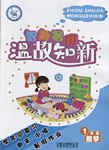题目内容
假定英语课上老师要求同桌之间交换修改作文,请你修改你同桌写的以下短文。短文中共有10处错误,每句中最多有两处。错误涉及一个单词的增加、删除或修改。
增加:在缺词处加一个漏字符号(∧),并在此符号下面写出该加的词。
删除:把多余的词用斜线(\)划掉。
修改:在错的词下划一横线,并在该词下面写出修改后的词。
注意:1.每处错误及其修改均仅限一词;
2.只允许修改10处,多者(从第11处起)不计分。
Recently,people were moved by a story taking the place in Thailand.It told about a girl whom had a quarrel with her mother and ran away from home.After several days,the girl walked into a restaurant in hungers.A man who was the cook invites her to sit down and then made some delicious food for him.The girl was very surprising.Then the cook told the girl that a woman took a photo and asked him whether he seen the girl.But the woman gave him some money to cook for the girl if she turned up.Until then the girl realized how greatly her mother was and she should be grateful on her.
 智趣暑假温故知新系列答案
智趣暑假温故知新系列答案

 t do you 8.(meaning)?” Bob answered 9.(slow),"Well, when there's a party in town, it belongs to my daughter. 10. there's a football game somewhere, it belongs to my son. When I've washed it, and it looks really nice and clean, it belongs to my wife. And when it is dirty, it's mine."
t do you 8.(meaning)?” Bob answered 9.(slow),"Well, when there's a party in town, it belongs to my daughter. 10. there's a football game somewhere, it belongs to my son. When I've washed it, and it looks really nice and clean, it belongs to my wife. And when it is dirty, it's mine."